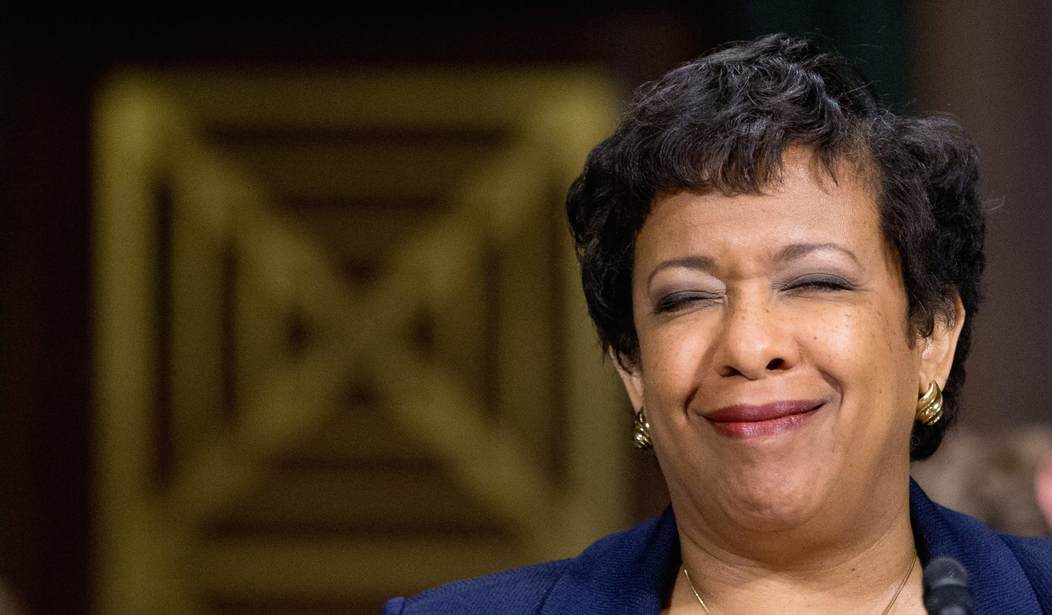The Senate Judiciary Committee announced Friday that it has opened a probe into former Attorney General Loretta Lynch’s possible interference in the FBI’s investigation of Hillary Clinton’s emails during the 2016 election.
In a letter to Ms. Lynch, the committee asks a number of questions pertaining to Russian intelligence documents, including a hacked email that describes how Lynch assured a senior Clinton campaign staffer that “she would not let the FBI investigation into Clinton go too far.”
In April, The New York Times reported that the FBI came into possession of a batch of hacked documents, one of which was said to be authored by a “Democratic operative who expressed confidence that Ms. Lynch would keep the Clinton investigation from going too far.” Chairman Grassley then requested a copy of the document from the Justice Department, which has failed to respond. A month later, The Washington Post reported similar facts and provided further details about individuals involved in these communications. The Post reported that the email in question, sent by then-chair of the Democratic National Committee Debbie Wasserman Schultz to Leonard Benardo of the Open Society Foundations, indicated that Lynch had privately assured Clinton campaign staffer Amanda Renteria that the FBI’s investigation wouldn’t “go too far.”
Comey was reportedly concerned that the communication would raise doubts about the investigation’s independence and began discussing plans to announce the end of the Clinton email investigation rather than simply referring it to the Department for a prosecutorial decision. Comey’s extraordinary action to announce the end of the investigation was a break from Justice Department protocol, and was later cited as justification for his removal from the FBI.
Judiciary Committee letter to #Lynch seeking answers on her political interference of FBI investigation on Clinton https://t.co/igRWD4SxgQ pic.twitter.com/RygUiH5vb9
— Nick Short 🇺🇸 (@PoliticalShort) June 23, 2017
Letters also went to Renteria, Leonard Benardo, and Gail Scovell of George Soros’ Open Society Foundations.
Fired FBI Director James B. Comey has said publicly that Ms. Lynch tried to shape the way he talked about the investigation into Mrs. Clinton’s emails, and he also hinted at other behavior “which I cannot talk about yet” that made him worried about Ms. Lynch’s ability to make impartial decisions.
Mr. Comey said that was one reason why he took it upon himself to buck Justice Department tradition and reveal his findings about Mrs. Clinton last year.
The probe into Ms. Lynch comes as the Judiciary Committee is already looking at President Trump’s firing of Mr. Comey.
Sen. Charles E. Grassley, chairman of the committee, said the investigation is bipartisan. The letter to Ms. Lynch is signed by ranking Democratic Sen. Dianne Feinstein and also by Sens. Lindsey Graham and Sheldon Whitehouse, the chairman and ranking member of the key investigative subcommittee.
During his June 8 testimony before the Senate Select Committee on Intelligence, Comey disclosed that Lynch had requested at one point that the FBI should describe the Clinton email probe as a “matter” rather than an “investigation” — which coincided rather conveniently with how team Clinton was characterizing the probe.
Comey told the committee: “That was one of the bricks in the load that led me to conclude I have to step away from the department if we are to close this case credibly.”
Acknowledging that he didn’t know whether it was intentional, Mr. Comey said Ms. Lynch’s request “gave the impression the attorney general was looking to align the way we talked about our investigation with the way a political campaign was describing the same activity.”
Comey said he agreed to Lynch’s language despite his discomfort because “that wasn’t the hill to die on.”
Deroy Murdock, contributing editor at National Review Online, weighed in on the Senate Judiciary Committee’s new probe on Fox Business News.
Murdock pointed out that one of the functions of Congress is to provide oversight of the government.
“This strikes me as total corruption and the appropriate oversight committees should bring in Loretta Lynch, bring in James Comey, bring in Hillary Clinton,” Murdock said. He suggested that a special counsel would be better suited to investigate the Clinton email matter than the current Russian collusion witch hunt.
“There’s a difference between criminalizing political differences” and investigating Hillary Clinton’s alleged crimes, Murdock argued. “Like multiple violations of the Espionage Act … witness tampering, destruction of evidence, destroying all those emails.”
He added: “There’s a difference between not liking someone’s political views and persecuting them for that, and people breaking federal law over and over and over again and ultimately having to pay a price for that because this is a country based on the idea of equal justice under the law and if we don’t prosecute people who break the law, it is indeed a banana republic where we have multiple levels of justice for people in power or out of power.”
The House Intelligence panel reportedly plans to interview Clinton campaign chair John Podesta next week.









Join the conversation as a VIP Member